-
 Art of Wellness Acupuncture & Traditional Chinese Medicine (TCM)11704 Wilshire Blvd, Suite 295, Los Angeles, CA, 90025
Art of Wellness Acupuncture & Traditional Chinese Medicine (TCM)11704 Wilshire Blvd, Suite 295, Los Angeles, CA, 90025
myartofwellness@gmail.com310-451-5522 Office Hours
MonClosedTue7:30 am --4 pmWed7:30 am --4 pmThu7:30 am -- 4 pmFri7:30 am -- 4 pmSat7:30 am -- 4 pmSunClosedOur office opens from Tuesdays to Saturdays 7:30 am to 4 pm, will be closed on Memorial day, Independent day, Labor day, Thanksgiving day, Christmas and New year.
-
Recent Posts
- How to Treat Myofascial Pain Syndrome With Acupuncture and TCM
- How to Treat Costochondritis With Acupuncture and TCM
- How to Treat Ankylosing Spondylitis With Acupuncture and TCM
- How to Treat Gastroparesis With Acupuncture and TCM
- How To Treat Sleep Apnea With Acupuncture and TCM
- How To Treat Baker’s Cyst With Acupuncture and TCM
- How to Treat Sinusitis With Acupuncture and TCM
- How To Treat Sjogren’s Disease With Acupuncture and TCM
- How to Treat Raynaud’s Syndrome With Acupuncture and TCM
- How to Treat Autoimmune Disorders With Acupuncture and TCM
- Chinese New Year 2024 Year of the Dragon
- How To Treat Addison’s Disease With Acupuncture and TCM
- Sign up to receive news and updates and get my free report:“The Top 10 Reasons to Try Acupuncture”

April 2024 M T W T F S S 1 2 3 4 5 6 7 8 9 10 11 12 13 14 15 16 17 18 19 20 21 22 23 24 25 26 27 28 29 30
Circulation
How to Treat Raynaud’s Syndrome With Acupuncture and TCM
By Qineng Tan, L.Ac., Ph.D. and Xiaomei Cai, L.Ac. Ph.D.

Fingers numb? Numbness in fingers and toes? Fingers turning white, poor circulation in fingers, cold fingers and toes? Raynaud’s disease, or Raynaud’s phenomenon, causes poor circulation in the extremities due to constriction of the blood vessels, usually triggered by cold weather or stress. Acupuncture can help relieve Raynaud’s disease symptoms.
Raynaud’s disease is a condition characterized by occasional narrowing of the blood vessels, primarily in the fingers and toes. The small arteries that supply blood to the skin of the fingers and toes (and sometimes, to the ears and the tip of the nose) become constricted in cold conditions.
Raynaud’s syndrome causes the tips of the fingers and/or toes to turn white due to the lack of circulation, and there may be numbness in fingers or tingling in toes. A “Raynaud’s attack” or episode lasts until the person warms up, at which point, there may be a burning sensation, and the affected skin may flush and turn red as blood flow returns.
Raynaud’s can occur in two forms: primary and secondary.
Primary Raynaud’s, also called Raynaud’s disease, is the more common form and isn’t usually related to another medical condition. Raynaud’s is considered to be an exaggerated response to cold, emotional stress or anxiety, leading to spasms in the small arteries.
People with primary Raynaud’s phenomenon usually begin to experience symptomatic episodes during their teenage years. Women are more likely to have Raynaud’s.
Secondary Raynaud’s is less common but more serious. It is associated with other diseases, typically autoimmune diseases or connective tissue disorders, like scleroderma, rheumatoid arthritis, thyroid disorders, or lupus.
Secondary Raynaud’s can be linked to conditions that directly damage the arteries or affect blood flow, like carpal tunnel syndrome. In these cases, it is considered a symptom rather than a separate condition.
Raynaud’s Syndrome Causes
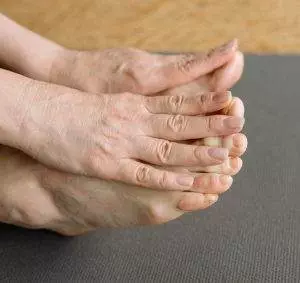
For most people with Raynaud’s syndrome, there is probably a combination of genetic, physiological, and environmental factors at play.
Vascular abnormalities, or dysfunction in the blood vessels, involving excessive narrowing (vasospasm) and poor dilation in response to stimuli, may be involved.
Overactivity of the nerves controlling the blood vessels (sympathetic nervous system) may cause spasms.
Raynaud’s can tend to run in some families. If someone is already susceptible, then the numbness in fingers and toes may be triggered by cold temperatures, or a stressful situation. Smoking cigarettes can also cause Raynaud’s symptoms.
In secondary Raynaud’s, underlying autoimmune conditions can lead to inflammation and damage to blood vessels.
An injury to one of the limbs, like a broken wrist, or damage to the tissues from frostbite, could also trigger Raynaud’s phenomenon.
Some prescription medications, such as beta blockers, ADHD medications, medications for migraine headaches, and even some cold and flu medicines, could cause Raynaud’s symptoms.
Acupuncture treatment can help to relieve Raynaud’s syndrome symptoms and also address the underlying condition that may cause Raynaud’s.
Top 10 Raynaud’s Disease Symptoms
Raynaud’s symptoms may show up differently for each person. Symptoms of Raynaud’s disease can vary in severity and may include:
- Skin changes color: pallor (pale skin, white skin, or yellow skin) in the affected fingers or toes during an episode
- In rare cases, Raynaud’s phenomenon can affect other areas, such as the nose, ears, and lips.
- Some people may experience Raynaud’s in their nipples, which can cause a severe throbbing pain.
- Bluish discoloration (Cyanosis) as blood flow decreases
- Affected areas feel cold and/or numb during an episode
- Throbbing or tingling in the fingers or in the toes
- Sensitivity to cold temperatures, leading to more frequent episodes in cold weather.
- In severe cases, recurrent or persistent episodes of reduced blood flow can lead to skin sores or ulcers, particularly on the fingertips or toes.
- Changes in the texture and color of the nails, including nail beds that turn white and then blue during an episode.
- Some individuals may experience joint pain, particularly if there is an underlying connective tissue disorder.
Emotional stress, anxiety, or rapid changes in temperature can trigger Raynaud’s symptoms.
Raynaud’s disease is generally considered a benign condition, but repeated episodes can lead to more serious problems, like skin sores, chilblains, or even gangrene, which can cause permanent damage to tissues.
Raynaud’s Syndrome Treatment

Diagnosis of Raynaud’s disease may involve a test called nailfold capillaroscopy. This is a non-invasive test that allows the doctor to see the capillary size and action in the tips of the fingers and nail bed. This can help to determine whether the person has Primary Raynaud’s, or may have a connective tissue disorder, like lupus or Sjogren’s syndrome.
The standard medical treatment for Raynaud’s phenomenon aims to manage symptoms, improve blood flow, and prevent complications. While there is no cure for Raynaud’s, various medications and lifestyle modifications can be employed to alleviate symptoms and enhance circulation.
Medications that relax and widen blood vessels, known as vasodilators, are commonly prescribed. Calcium channel blockers, such as nifedipine, are often used to help dilate the small blood vessels in the extremities, reducing the frequency and severity of Raynaud’s episodes.
Phosphodiesterase inhibitors like sildenafil (which is also commonly prescribed to help erectile dysfunction, ED) can sometimes be beneficial in promoting blood vessel dilation and improving blood flow.
In some cases, topical nitroglycerin cream may be prescribed to increase blood flow to the affected areas.
Endothelin receptor antagonists, such as bosentan, may be considered in cases where blood vessel constriction is severe. These medications target endothelin, a substance that can cause blood vessels to narrow.
Antiplatelet agents like aspirin may be recommended to reduce the risk of blood clots and improve blood circulation.
If Raynaud’s is secondary to another condition, treating the underlying cause is crucial. For example, if it is associated with an autoimmune disorder, immunosuppressants might be considered.
Lifestyle changes play a significant role in managing Raynaud’s symptoms. Patients are typically advised to dress warmly.
Quitting smoking is strongly recommended, as smoking constricts blood vessels.
Can Acupuncture Help Raynaud’s Syndrome?
TCM has acknowledged Raynaud’s phenomenon as a condition of severe cold in the limbs for centuries. According to TCM theory, a deficiency of Qi and blood circulation is the root cause of Raynaud’s symptoms. In TCM, we consider that Qi (life force energy) and blood work together; Qi moves the blood throughout the body, and blood carries the Qi throughout the body.
In TCM, we are always looking at both external factors and internal factors that contribute to a condition. In the case of Raynaud’s disease, cold acts as a pathogenic factor that can be already present inside the body, and then, when a person is exposed to cold temperatures as an external factor, this triggers an extreme reaction.
So, in many cases, a person suffering from Raynaud’s is already dealing with too much cold and poor blood circulation. Herbs can be used to help warm the body internally and increase blood flow.
Some people develop Raynaud’s symptoms in response to stress. In this case, the liver may be involved. In TCM, the liver is associated with strong emotions, and when the liver is distressed, it can trigger muscular contractions that squeeze the blood vessels, restricting blood flow. In these cases, we will use herbal formulas and acupuncture points to help restore balance in the liver.
When there is an autoimmune disease also present, such as scleroderma or lupus, then there may also be blood stasis, and a thickening of the blood and tissues. TCM can address those conditions at their roots, as well.
An acupuncturist will make careful observations about how each individual is experiencing Raynaud’s symptoms, and address it according to the pattern presenting.
Top 3 Tips for Managing Raynaud’s Syndrome Symptoms

You can help prevent Raynaud’s attacks by keeping your whole body warm, especially your hands and feet.
- Protect your hands and feet. Wear mittens or gloves, thick socks and lined boots, and use hand and foot warmers in cold weather. Consider wearing gloves or oven mitts when reaching into the refrigerator or freezer.
- Exercise regularly, both to stimulate healthy blood circulation, and to help manage stress levels.
- If hands and/or feet do begin to feel cold or numb, take action to warm them up immediately by wiggling them, running them under warm water, massaging them, or putting your hands in your armpits or against your abdomen under your clothing.
Acupuncture Near Me for Raynaud’s Syndrome in West Los Angeles
It is important to address Raynaud’s disease to avoid damage to the nerves and skin tissue in your extremities, and to be sure whether or not Raynaud’s symptoms are related to an underlying autoimmune disorder. The acupuncturists at Art of Wellness Acupuncture in West L.A. have over 35 years of experience helping people with autoimmune conditions, circulatory problems, and nerve pain and tingling. The combination of herbs and acupuncture treatment can help relieve Raynaud’s phenomenon symptoms and address any autoimmune disease or nerve conditions.
*This article is for education from the perspective of Traditional Chinese Medicine only. The education provided by this article is not approved by FDA to diagnose, prevent, treat and cure human diseases. It should not stop you from consulting with your physician for your medical conditions. Traditional Chinese Medicine is based on Qi, which is an invisible force that usually cannot be observed by modern science. Because science focuses on testing ideas about the natural world with evidence obtained through observation, these aspects of acupuncture can’t be studied by science. Therefore acupuncture and Chinese herbs are often not supported by double-blind, randomized trials, and they are considered alternative medicine therapies in the United States.
How to Treat POTS With Acupuncture and TCM
By Qineng Tan, L.Ac., Ph.D. and Xiaomei Cai, L.Ac., Ph.D.

Do you often feel shaky, like you’re fainting, or experience dizziness, especially when you’re getting up from sitting down or lying down? Do you feel like you have a rapid heartbeat, or shortness of breath? Postural orthostatic tachycardia syndrome, known as PoTS syndrome, or POTS, is a condition that causes unstable blood pressure when changing positions. Acupuncture and TCM can help relieve dizziness and other symptoms of POTS.
Postural tachycardia syndrome (or postural orthostatic tachycardia syndrome) is a chronic disorder related to the autonomic nervous system that causes people to experience dizziness and increased heart rate when they move into an upright position; this is known as orthostatic intolerance.
POTS syndrome is fairly common, affecting up to 3 million people in the U.S. POTS occurs more often in people assigned female at birth, and often first shows up during the teenage years.
The most common symptom of POTS is feeling light-headed when changing your position from sitting to standing, or when getting up from lying down.
Whenever we have been sitting or lying down for a while, blood pools in the lower parts of the body. When we get up, the autonomic nervous system starts a series of actions to move blood back up into the top half of the body. This involves squeezing blood vessels, and releasing adrenaline and norepinephrine, to make the heart beat faster.
When a person has POTS, more blood tends to pool in the legs, and the nervous system process doesn’t cause the normal, quick response from the blood vessels, so more hormones are released, which can cause the person’s heart rate to increase, and a dizzy, faint feeling.
Medical science has not yet discovered exactly what causes POTS, but there are different characteristics that allow for categorizing these different types of POTS syndrome:
- Neuropathic POTS – damage to small fiber nerves that control blood vessel constriction in the abdomen and limbs
- Hyperadrenergic POTS – when a person has elevated levels of norepinephrine
- Hypovolemic POTS – when a person has unusually low blood levels
- Secondary POTS – when POTS symptoms are related to another condition that causes neuropathy, such as Lyme disease, diabetes, or autoimmune disorders like Lupus or celiac disease.
While POTS is not rare, it can be difficult to get a diagnosis, because the criteria can be vague, and the symptoms can so often be related to other conditions, or just seem “normal.”
For many people, POTS is truly debilitating and can have a serious, negative impact on daily life. It can also contribute to feelings of anxiety and depression. Acupuncture and TCM offer an adjunct or alternative treatment for POTS that can help with dizziness, irregular heartbeat, digestive problems, muscle weakness, migraines, trouble sleeping, and other symptoms, all at the same time.
Top 10 POTS Symptoms
The primary symptoms of POTS are related to the cardiovascular system: rapid heartbeat, and dizziness. However, there can be many other POTS symptoms.
- Irregular heart rate, rapid heart rate, fast heartbeat, chest pain, heart palpitations
- Dizziness, especially when standing up or getting up from lying down, feeling faint
- Breathing problems: hyperventilating, bronchial asthma, shortness of breath
- Constipation, diarrhea, nausea, abdominal pain
- Muscle weakness, muscle pain, tremor
- Skin rash, flushed face, flushing, sweating
- Migraine headaches
- Cognitive issues, brain fog, difficulty concentrating
- Trouble sleeping
- Frequent urination, nocturia
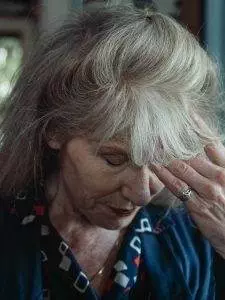
Other symptoms of POTS may include: tinnitus (ringing in the ears), blurred vision, red or purple appearance of the legs when standing up, and a “jittery” feeling or general nervousness.
As with many syndromes, different people will experience different combinations of symptoms. While dizziness and rapid heartbeat are the signs most commonly associated with POTS, many people with POTS will also suffer from abdominal pain and gastrointestinal problems, perhaps without realizing there is a correlation.
POTS symptoms may resemble many other conditions, such as:
- Chronic fatigue syndrome, ME/CFS
- Graves disease
- Other heart conditions that involve tachycardia
- Anemia
- Stroke
- Epilepsy
- Adrenal fatigue
- Drug use
- Eating disorders
- Benign paroxysmal positional vertigo
- Ménière’s disease
Because POTS is often misunderstood or misdiagnosed, many patients will be offered medications to manage headaches, vertigo, or depression, which may not offer much relief.
Medical Treatment for POTS
As there is no definitive cure for POTS, Postural orthostatic tachycardia syndrome treatments typically aim to manage symptoms and improve quality of life.
Dietary modifications are a fundamental component of POTS management. Adequate daily fluid intake is crucial. A diet that includes plenty of salt helps maintain blood volume, aiding blood flow to vital organs. Patients are typically advised to avoid alcohol and carefully monitor caffeine intake, as these substances can exacerbate symptoms.
Exercise is gradually introduced, often starting in reclined or horizontal positions, with the goal of increasing exercise tolerance over time. Physical therapy helps retrain the autonomic nervous system, enhancing blood circulation.
Compression garments can help reduce blood pooling, and specific postures while sitting or sleeping may alleviate symptoms. Identifying triggers such as prolonged sitting, heat, or certain drugs allows for better symptom control. Regular monitoring of blood pressure and pulse, along with adequate sleep hygiene, aids overall well-being.
While no single pharmacological solution is universally effective, some medications may be prescribed based on individual symptoms. These may help to improve blood volume, aid sodium retention, reduce heart rate, and enhance blood vessel constriction.
While POTS symptoms may intermittently improve with medications and lifestyle modifications, the underlying cause of POTS may persist. Acupuncture and TCM treatment can provide a holistic solution for individuals living with POTS, which may help to address the root causes of this syndrome.
Can Acupuncture Help POTS?
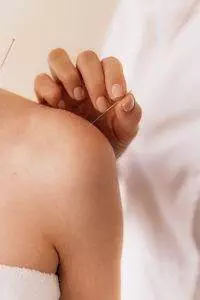
POTS is a kind of Dysautonomia; this is a general term that describes conditions that involve malfunctioning of the autonomic nervous system. This causes people’s bodies to have problems with regulating the sorts of functions that are typically automatic, like the beating of the heart, circulation of blood, breathing, and temperature control.
Western medicine offers some treatments that can help address individual symptoms of dysautonomia, but it does not have a way of treating the root of the problem. It can be difficult to get proper treatment, because people who suffer from POTS and other kinds of dysautonomia often seem reasonably healthy, and their complaints—dizziness, headaches, mental health problems—seem vague.
Acupuncture and TCM have been used to treat these kinds of problems for centuries. Acupuncture treatment can help provide positive effects on the subtle communications of the nervous system, as well as the heart rate, and physiological symptoms of anxiety. According to TCM theory, several organ systems may be involved and need support: not only the heart, but also the kidneys or spleen.
Studies have shown that acupuncture for dysautonomia can help relieve symptoms like heart palpitations, insomnia, and digestive problems.
A qualified acupuncturist is also well-versed in nutrition and can offer more detailed information regarding dietary and lifestyle changes that can help each individual patient. Your TCM provider will spend time learning more about you, so that they can offer personalized advice.
Acupuncture Near Me for POTS in West Los Angeles
TCM and acupuncture can help people with all types of autoimmune disorders, nerve disorders, and conditions involving fatigue and dizziness that may be difficult to solve with conventional methods. Acupuncture works on a deeper, more subtle level to help address complex syndromes. If you are regularly experiencing trouble with feeling light-headed, having unexplained headaches and sleep problems, it may be time to seek a more holistic alternative treatment.
*This article is for education from the perspective of Traditional Chinese Medicine only. The education provided by this article is not approved by FDA to diagnose, prevent, treat and cure human diseases. It should not stop you from consulting with your physician for your medical conditions. Traditional Chinese Medicine is based on Qi, which is an invisible force that usually cannot be observed by modern science. Because science focuses on testing ideas about the natural world with evidence obtained through observation, these aspects of acupuncture can’t be studied by science. Therefore acupuncture and Chinese herbs are often not supported by double-blind, randomized trials, and they are considered alternative medicine therapies in the United States.
How to Treat Anemia With Acupuncture and TCM
By Qineng Tan, L.Ac., Ph.D & Xiaomei Cai, L.Ac., Ph.D

Tired, weak, and pale? These can be symptoms of Anemia. Whether anemia is due to deficiency of iron, or inherited, as with sickle cell anemia or thalassemia, TCM and acupuncture can provide an alternative or adjunct anemia treatment.
Anemia (sometimes spelled ‘anaemia’) is a broad term referring to blood disorders that cause people to either not have enough red blood cells, or to have red blood cells that don’t function properly. Red blood cells are made by the bone marrow, using iron, folic acid, and vitamin B12 as building blocks.
Red blood cells carry hemoglobin to organs and tissues throughout the body. Hemoglobin is a protein that contains iron. Hemoglobin picks up oxygen from the lungs and carries it to the rest of the body. If this process is disrupted, then cells in the body don’t get the oxygen they need.
Top 5 Types of Anemia
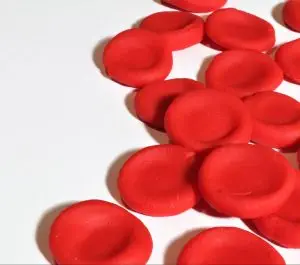
There are many different types of anemia. Some are genetically inherited. Others may manifest due to conditions like pregnancy, an injury, an illness like mononucleosis, or nutritional deficiencies. Some types of anemia are related to autoimmune disorders, such as lupus, Crohn’s, or Celiac disease. Anemia can also be caused by blood loss due to an accident or surgery, or internal bleeding. The most common types of anemia include:
- Sickle cell anemia
- Pernicious anemia
- Iron deficiency anemia
- Thalassemia
- Aplastic anemia
Sickle cell disease is an inherited condition in which some red blood cells form in an unusual shape, like a sickle or crescent. These cells have a harder time moving through the blood vessels, so blood flow can become slow or blocked.
Thalassemia is also inherited. With this condition, the body does not make enough hemoglobin.
Iron deficiency anemia occurs when a person doesn’t have enough iron to nourish their red blood cells, so they have low hemoglobin levels. This type of anemia can happen due to a loss of blood, or because a person’s digestive system isn’t absorbing enough iron from their food. Sometimes people develop this type of anemia during pregnancy, because a lot of iron is going to the growing fetus.
Low levels of Vitamin B12 and/or folate can also cause anemia. Pernicious anemia is a type of autoimmune disorder in which the digestive tract cannot properly absorb vitamin B-12 because immune cells are attacking the lining of the stomach. Megaloblastic anemia is another kind of anemia, where the red blood cells are too large, that happens due to a B12 deficiency, or lack of folate.
People can also develop a form of pernicious anemia after having a gastric bypass or other surgery in which a part of the stomach or small intestine is removed. This inhibits their ability to absorb nutrients during digestion.
Aplastic anemia occurs when the bone marrow cannot produce enough blood cells. Aplastic anemia is rare, but it may happen when a person has gone through chemotherapy or radiation treatment, had a reaction to some toxin or medication, or after a viral infection.
Aplastic anemia can also manifest as an autoimmune disorder, in which the immune system attacks the bone tissue. Fanconi anemia is a genetic condition that also affects the bone marrow’s ability to make red blood cells.
Top 10 Anemia Symptoms
What are the signs that you are anemic? Pallor, or pale skin, weakness and fatigue, dizziness, and headaches are some of the most well-known iron deficiency symptoms.
Other signs of anemia include:
- Fatigue, feeling tired all the time
- Muscle weakness
- Markedly pale skin, pallor, or yellow skin
- Shortness of breath, rapid breathing
- Changes in stool
- Dizziness, light-headed
- Palpitations, rapid heart rate
- Low blood pressure
- Feelings of irritability, anger, frustration, depression, anxiety
- Headaches

Other signs of low iron can include:
- bruising easily
- pounding or “whooshing” in the ears
- cravings for ice or clay
- brittle nails
- hair loss
- sore tongue
If anemia worsens, low iron symptoms or low hemoglobin symptoms could include:
- fainting, passing out
- whites of the eyes look blue
- chest pain
Treatment for Anemia
Doctors will usually order a CBC test first to check for anemia. This can reveal how many red blood cells you have, and the shape of the cells. Tests can also show B12 and iron levels.
Iron supplements and high iron foods will be recommended. In more severe cases, iron may be supplied intravenously, or with a blood transfusion. Vitamin B12 shots or supplementation of folic acid and Vitamin C may also be recommended.
Genetic types of anemia like sickle cell disease and thalassemia may be treated with a bone marrow transplant.
Autoimmune related anemia, like aplastic anemia, is usually treated with blood transfusions, immunosuppressant medications and steroids, and ultimately, bone marrow transplant, or stem cell transplant.
Anemia is, for the most part, considered a chronic illness that can be managed with additional iron and other nutrients. TCM allows us to look more deeply at the root causes of anemia, and to help increase iron absorption by addressing deficiencies affecting the digestive tract.
Can Acupuncture Help Anemia?
In TCM, we see many conditions as occurring due to a deficiency of Qi (vital energy) and/or blood. Blood deficiency can be the result of excessive blood loss, as after an injury, or due to heavy menstrual bleeding, as when a person has uterine fibroids. It can also happen because the organ systems are not able to perform their roles in the production of blood. Blood stasis, which occurs when blood is not being moved or replaced properly, can also be a factor.
In TCM theory, blood is considered to be governed by the heart, stored in the liver, and produced by the spleen. TCM differentiates different patterns of blood deficiency according to which organ systems seem to be affected:
- Heart blood deficiency: restlessness, difficulty concentrating, memory problems, heart palpitations
- Spleen blood deficiency: weight loss, lack of appetite, mental fatigue
- Liver blood deficiency: irritability, dry, brittle nails, spasms
Acupuncture treatment for anemia may involve, then, using specific acupoints to help strengthen the Qi of the liver, stomach, and/or spleen.
The root cause of anemia is that the digestive tract is not able to absorb nutrients adequately. Acupuncture has been shown in studies to help increase iron absorption in the intestinal tract. In laboratory studies, acupuncture treatment was seen to increase levels of serum ferritin, a protein that carries iron in the blood.
Chinese herbal supplements for anemia can help to remove blood stasis, strengthen the spleen and heart, and provide nourishment for the production of blood cells.
One study showed that TCM herbs helped reduce mortality risk when used as an adjunct or alternative to medical therapies in patients with aplastic anemia.
Acupuncture Near Me for Anemia in Los Angeles and Santa Monica
Anemia can have an impact not only on your energy and physical well-being, but your mental health, as well. TCM treatment for anemia involves a combination of acupuncture, herbs, and nutrition that can help strengthen the process of blood production and transportation throughout the body, while also helping to relieve symptoms like dizziness, fatigue, headaches, and irregular heartbeat. The acupuncturists at Art of Wellness have over 30 years of experience helping patients overcome chronic conditions like anemia.
*This article is for education from the perspective of Traditional Chinese Medicine only. The education provided by this article is not approved by FDA to diagnose, prevent, treat and cure human diseases. It should not stop you from consulting with your physician for your medical conditions. Traditional Chinese Medicine is based on Qi, which is an invisible force that usually cannot be observed by modern science. Because science focuses on testing ideas about the natural world with evidence obtained through observation, these aspects of acupuncture can’t be studied by science. Therefore acupuncture and Chinese herbs are often not supported by double-blind, randomized trials, and they are considered alternative medicine therapies in the United States.
How to Detox With Acupuncture and TCM
By Xiaomei Cai, L.Ac., Ph.D. & Qineng Tan, L.Ac., Ph.D.
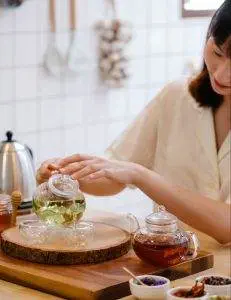
Why is it important to do a detox or body cleanse periodically? When done with the right support from an acupuncturist near me, detoxing can help improve your digestion, immune function, fertility, and many other aspects of your health. Store bought colon cleanse products or a juice cleanse won’t really do the job, though. A detox program with acupuncture and Chinese herbs will do more to optimize your health than just a detox diet will.
When we recommend our Detox Program at Art of Wellness, we are not talking about fasting or detox drinks, like a master cleanse. The goal of our program is to detoxify the organ systems of the body: it’s a liver detox, kidney cleanse, lungs, heart, and spleen. This is a full body cleanse designed to give you a health reset. According to TCM philosophy, your body knows how to repair and renew itself, but it cannot do this job when it is congested and out of balance.
In TCM, we have a broad concept of what “toxins” are and how they can affect our bodies and our health. Toxic chemicals that come from our environment, such as food additives, pesticides, cleaning products, and beauty and hygiene products are certainly part of the problem. Drugs, medicines, alcohol, and unhealthy foods can also be toxic. So can behavioral habits, like sitting and looking at our screens and devices too long.
But our own bodies produce toxins, too. The waste products our organs create are “toxic,” and if they are held in the body too long without being adequately cleared out, they can negatively impact organ function. Imbalances in the system can cause conditions of excess heat or phlegm, which can lead to all kinds of problems with both your physical and mental health.
Stress, lack of sleep, and extreme emotions can also contribute to toxic conditions in the body and mind. When the organ systems are out of balance, the body is under constant pressure to keep functioning, but we do not feel our best.
Signs you need to detox include:
- Fatigue, low energy, tired all the time
- Foggy head, memory problems, trouble concentrating
- Constipation
- Trouble sleeping, insomnia
- Weight gain
- Hair loss
- Hormone imbalances
- Signs of rapid aging
- Skin rash, acne
- Fingernails are brittle, lined or ridged
- Severe PMS symptoms or menopause symptoms
- Headaches, migraine
- Water retention, edema, swelling in extremities
Inflammation is largely created by toxic conditions in the body, and most pain conditions and chronic illnesses stem, at least in part, from inflammation somewhere.
Why You Need a Liver Detox
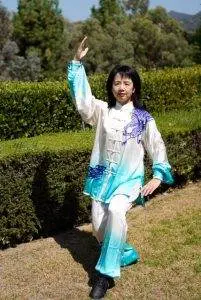
In conventional medicine, we think of the liver as being a sort of filter that removes toxins from the blood and helps metabolize fat. In TCM theory, we consider the liver to be the storehouse and distributor of blood; therefore, it also plays a crucial role in the menstrual cycle. The liver is also strongly connected to a person’s emotional life.
Stress, lack of sleep, too much sugar, alcohol, fatty, fried foods, pharmaceutical medicines, and recreational drugs all tax the liver above and beyond what it needs to do just to keep the blood flowing to nourish the body. When too many demands are placed on the liver, it can cause all kinds of symptoms, including: fatigue, insomnia, and headaches. Feelings of anger, frustration, anxiety, and irritability may arise. Conversely, when a person is feeling bitter and resentful, and isn’t able to express it, those unresolved emotions may begin to cause trouble with liver function.
Just as the liver governs the blood, in TCM, the kidneys govern the water of the body, controlling elimination through the bladder, and maintaining blood pressure by keeping the right amount of water in the bloodstream. Signs that the kidneys are not balanced include: problems with blood pressure, edema, puffiness in the face or extremities, UTIs, chronic fatigue, and menopause symptoms, like dryness and hot flashes.
Detoxing the organ systems, including the liver and kidneys especially, can help rejuvenate the digestion and allow better nutrition to reach all parts of the body, as the quality and flow of blood and other bodily fluids will be improved.
Making sure that your excretory system is in good working order before starting a cleanse is important. If you are already having problems with constipation, for example, we will want to make sure we get things moving before we start cleansing the organs. Our detox also focuses on the body’s largest excretory organ: the skin.
Top 10 Reasons To Detox
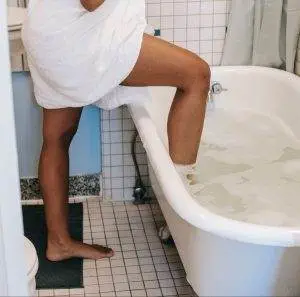
It is a good idea for everyone to detox periodically; detoxing every six months is reasonable for most people. Sometimes we will specifically recommend a detox for a patient when they are struggling with a particular health problem, or if they are planning a pregnancy.
Detoxing can help:
- Boost Immunity – a cleanse will help get your lymphatic system, which produces and transports immune cells and removes waste from cells, moving, improving the efficacy of your immune system.
- Break Free From Addiction – if you are ready, a commitment to the detox program and food plan can help you end patterns of substance abuse, drug use, alcohol addiction, smoking, and other types of dependency.
- Infertility – We often advise people who come to Art of Wellness for fertility treatment to begin with the Detox Program. Not only will this help increase the chances of conception occurring, whether naturally or with the aid of ART, but it will also lay the foundation for your child’s health in the future.
- Improve sleep – This works both ways. In order for the body to do its routine daily work of removing toxic waste, it needs plenty of sleep. The Liver, in particular, is working hard through the night to clean and deliver fresh blood to the cells. Sleeping on your side enhances your body’s ability to do this work, allowing the internal organs to drain properly. When your body is functioning well, your sleep will be of better quality, more restful and refreshing.
- Improve skin and hair – Dull eyes and skin, dark circles or bags, puffiness, and thinning hair are signs of stagnant blood and Qi. Nutrients from the right foods and Chinese herbs help to nourish the skin, and clear heat, dampness, and dryness. When old cells are removed, hair and eyes can shine again. Acupuncture treatment can help stimulate collagen production, which also happens while you sleep.
- Weight loss – While our acupuncture detox is not about how to lose belly fat fast, many people will find that it gives them a good foundation for new eating habits. Detoxing the liver and kidneys will help your body metabolize fat better.
- Balance hormones – severe PMS symptoms, bloated stomach and mood swings, perimenopause symptoms, infertility in women and infertility in men (oligospermia) can all be improved when hormone function improves. Acupuncture treatment can also help relieve conditions like PCOS, fibroids/leiomyoma, and endometriosis for women, and BPH in men.
- Reduce inflammation – many illnesses and pain conditions are inflammatory in nature. If you are suffering from pain due to plantar fasciitis, gout, rheumatoid arthritis, tennis elbow, carpal tunnel syndrome, shoulder or hip pain, acupuncture can help.
- Increased energy – better nutrition, better circulation, better sleep, and better organ function will all work synergistically to help you feel more energetic.
- Chronic illness – many chronic illnesses are rooted in toxic conditions within the body or exposure to toxins. Hard-to-treat conditions like autoimmune conditions and other systemic problems may be helped with alternative medicine when conventional medical treatments have not been successful. We treat many conditions with acupuncture and herbs, such as: lupus, lyme disease, celiac disease, fibromyalgia, and Crohn’s disease. We also provide support for people going through cancer treatment.
7 Steps of Detox Program With TCM Acupuncture and Herbs
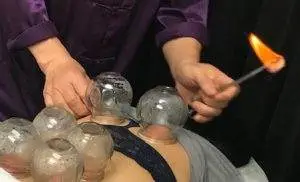
Pain and dysfunction occur when there is imbalance and when there are areas of stagnation within the body. Think of the metaphor of a house that needs to be deep-cleaned; there are dark corners of the body that have been ignored for a while, where dust and cobwebs have gathered. The Detox program reaches into these pockets of stagnation, sweeps them clean, and makes sure they get some fresh air and sunlight shining on them, in the form of invigorated Qi and blood.
- Acupuncture Treatments – the primary goal of acupuncture treatments during the detox phase is to get Qi moving freely, remove blockages, and to assist in elimination of toxins from the body.
- Cupping Treatment – the TCM modality of cupping creates a vacuum-like suction that moves Qi and blood from the innermost parts of the body outwards. During the detox program, cupping helps to pull toxins out of the lungs and other organs.
- Detox Herbs – the Chinese herb detox tea helps to clear heat and toxins from the body and improve digestion and elimination.
- Foot Pad Detox – detox foot patches, worn as you sleep at night and removed in the morning, help to pull toxins and fatty deposits from the body.
- Detox Bath – Sweating is an excellent way to remove toxins through the skin; this is why so many traditions rely on saunas and hot baths. Our herbal sachets allow you to enjoy a therapeutic herbal soak in your own bathtub.
- Exercise – Your acupuncturist will instruct you on how to practice daily exercises, based on QiGong movements, that will help to get Qi and blood moving.
- Nutrition – the food plan during the detox is based on whole grains, lean proteins, and plenty of vegetables, flooding your system with nutrients.
Detox Near Me Los Angeles, Westside
The beginning of the year, springtime, after recovery from a long illness, while preparing for a healthy pregnancy–anytime may be the right time for you to detoxify your system and get a fresh start. We recommend that you take the time to dedicate yourself to a week of cleansing with the Art of Wellness Detox Program at least twice a year for optimal health benefits.
*This article is for education from the perspective of Traditional Chinese Medicine only. The education provided by this article is not approved by FDA to diagnose, prevent, treat and cure human diseases. It should not stop you from consulting with your physician for your medical conditions. Traditional Chinese Medicine is based on Qi, which is an invisible force that usually cannot be observed by modern science. Because science focuses on testing ideas about the natural world with evidence obtained through observation, these aspects of acupuncture can’t be studied by science. Therefore acupuncture and Chinese herbs are often not supported by double-blind, randomized trials, and they are considered alternative medicine therapies in the United States.
How to Treat Oligospermia With Acupuncture and TCM
By Xiaomei Cai, L.Ac., Ph.D. & Qineng Tan, L.Ac., Ph.D.
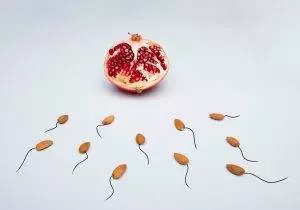
If you and your partner have been trying to get pregnant but it hasn’t happened yet, maybe you are concerned that it could be due to male infertility, or low sperm count, also known as Oligospermia. Male factor infertility is an issue in 40-50% of cases when a couple is having trouble conceiving. Acupuncture and TCM herbs offer a male infertility treatment that can help improve sperm production, increase sperm count, and help men produce healthy sperm.
Infertility in men is more common than you might think. Statistics show that infertility increasing worldwide is an issue, as many couples are having trouble conceiving. Roughly one in ten couples find that they are not able to get pregnant without some form of fertility treatment. Most men don’t know they may have this problem until they are trying to get their partner pregnant and things aren’t working. When couples go in for a female and male infertility test, about half of the time they find that male fertility is compromised. The cause of infertility in male can be due to many variables, so it may take more testing to discover why there is a problem. In many cases, infertility in men and women is never fully explained medically.
You can take a sperm count test at home, but that doesn’t tell you the whole story. A fertility test for men, or semen analysis, performed through a doctor will give you more information about sperm motility, sperm shape, the concentration of sperm in your semen, the Ph balance of the semen, and other details that may help to determine if there is a problem with male factor infertility. Other, more specific tests can show: swimming speed and direction, whether there are antisperm antibodies (ASAs) present, the sperm’s effectiveness at breaking through the outer wall of an egg, etc. Of men who are experiencing problems with infertility, about ten percent have azoospermia, which means a sperm count of zero, or no sperm in the semen. This can happen due to genetic conditions, radiation or chemotherapy treatments, use of some drugs, or anatomical abnormalities.
One of the most common causes of infertility in men is varicoceles, which are swollen veins in the testicles, similar to varicose veins. Varicoceles are not always noticeable, and often don’t cause any problems. However, they can block proper blood flow in the testicles, cause the temperature of the scrotum to rise, and have a negative impact on sperm production. This condition can be treated with surgery to repair the veins, or redirect blood flow to healthier veins.
Perhaps you have already heard about how beneficial TCM treatment can be for infertility in women, but you may not know that acupuncture for male infertility is also effective, whether used as an adjunct to ART (assisted reproductive technologies) treatment for male fertility, or as an alternative to conventional medical treatment. In the case of varicoceles, for example, studies have shown that men treated with acupuncture showed similar improvement in sperm motility and quality to men who had had minimally invasive surgery to help repair varicoceles.
Acupuncture treatment works on many levels, helping to improve blood circulation, reduce inflammation, cool excess heat, boost testosterone and erectile function, as well as helping to optimize overall health by reducing the effects of stress and anxiety, and improving sleep.
Top 10 Cause of Low Sperm Count

Problems with low sperm count and low sperm motility can be related to underlying health issues, or in some cases, lifestyle habits that may affect sperm production.
- Varicocele – swelling in the blood vessels in the testicles that has a negative impact on sperm production and sperm quality.
- Infections – some illnesses, like mumps, or sexually-transmitted diseases, like gonorrhea or HIV, can cause inflammation, damage, and/or scarring in the testicles that can affect sperm health or the mechanical release of sperm from the testicles.
- Ejaculation problems – chronic health conditions like diabetes, the use of blood pressure medications like alpha-blockers, or injury to the urinary tract or spine, can cause problems with the process of sperm being mixed with semen from the prostate and exiting the body through the penis. Retrograde ejaculation, for example, means that semen and sperm are going into the bladder instead of being expelled through the penis during ejaculation. Erectile dysfunction (ED) can also be an issue.
- Immune Infertility – autoimmune disorders can cause antibodies (antisperm antibodies, or ASA) to mistakenly attack sperm as if they were foreign bodies. This can happen in both men and women. (If a woman is producing ASAs, they attack the sperm when they enter the female reproductive system.) Some men who have had a vasectomy begin to develop these antibodies, and then, even after reversal of the vasectomy (vasovasostomy), they still have male infertility issues.
- Blocked tubes – several sets of tubes are involved in proper functioning of the male reproductive system and the male urinary system. If any of these tubes (the vas deferens, epididymis, seminal vesicle, urethra) are blocked, due to infection, inflammation, scarring, or other damage, it can affect sperm making it into the semen and out of the body during ejaculation. BPH and other prostate problems can cause inflammation in this area.
- Hormone imbalance – low testosterone levels or imbalances in levels of FSH and LH, hormones can cause low sperm production.
- Undescended testicles – a small number of male babies are born with one or both testicles that have not descended into the scrotum. In some cases, the testicles will descend within a few months on their own; in other cases, surgery is performed to correct the problem. If a boy grows into adulthood with his testes undescended, it can affect male fertility.
- Cancer or other tumors – a tumor or imbalance in hormones due to cancer (testicular cancer, prostate cancer, or bladder cancer) can disrupt sperm production. Side effects of cancer treatments like radiation, chemotherapy, and hormone therapy can also slow down sperm production or stop it. These side effects can also affect libido and sexual function.
- Chromosomal defects – several genetic disorders can cause infertility in men due to chromosomal abnormalities (Noonan’s syndrome, Cystic fibrosis, Kleinfelter syndrome)
- Celiac disease – While there has only been limited research done thus far, there have been some connections made between male infertility and celiac disease, which is a type of autoimmune disorder. One study suggested that a gluten-free diet helped men with celiac disease to increase sperm count.
Other things that can impact sperm count and sperm motility include the use of recreational drugs like marijuana, opiates, hormone supplements meant to boost testosterone, or anabolic steroids taken to build more muscle mass. Medications used to treat autoimmune disorders, like IBDs, Crohn’s disease, etc., can also affect male fertility.
How to Increase Sperm Count – Medical Treatments

Medical treatment and ART for male infertility depends first on testing to get as clear a diagnosis as possible. If it seems like some infection is causing problems, antibiotics may be prescribed, although in some cases, an extended infection may have already done some damage to the organs involved. If hormone imbalance is the problem, medications that alter the balance of FSH and LH, hormones crucial to sperm production, may be used, including estrogen receptor blockers, or human chorionic gonadotropin. As previously mentioned, surgeries to repair varicoceles can help to restore fertility.
In many cases, though, the exact cause of male infertility is not known. Male infertility is a complex health issue. The physical mechanics of sperm production, erectile function, and ejaculation are all important. It is important to acknowledge that these forces are closely connected to a man’s mental health and emotional health. If there is a lot of stress around trying to get pregnant, stress about having sex, stress in the relationship, or many other issues that may come into play, then the stress itself can have a real impact on sexual function and sperm production. Acupuncture and TCM is a good treatment method to address all of these physical and emotional issues at the same time, without unwanted side effects.
Can Acupuncture Help Male Infertility and Oligospermia?
First, let’s make it clear: acupuncture treatment for low sperm count is not going to involve needles being placed anywhere near the scrotum or penis. Acupuncture works on a subtle level and is relatively painless. Patients usually find it relaxing, and often take a nap during the treatment.

According to TCM theory, both blood and Qi need to flow smoothly throughout the channels of the body, nourishing the organs, for there to be optimal health. This is particularly true when it comes to promoting good reproductive health. Sperms must be ready to move through both the man’s reproductive system and the woman’s reproductive system, penetrate an egg, and start a new life. In order for healthy sperm to be produced, there needs to be a lot of blood and energy flowing to the testicles, where sperm are created.
In TCM, dampness and phlegm are often the causes of blockages. Acupuncture treatment focuses on improving blood flow, not only to testicles, but also to the kidneys and liver. TCM theory considers the kidney to be the keeper of a person’s “essence.” Essence is the life material that we inherit from our parents and pass on to our children. The kidneys are also considered to be responsible for the regulation and transformation of fluids in the body. Strengthening the kidneys, clearing heat, phlegm, and dampness from the organs, and nourishing the blood and Qi are the main focus of acupuncture treatment for low sperm count.
Nutrition, diet, exercise, stress reduction, adequate sleep, and other lifestyle habits are important factors in treating low sperm count. Your acupuncturist near me will go over the details in order to help you choose foods that boost fertility and adjust your routines so that they are most beneficial for infertility.
It helps to realize that sperm take about two to three months to mature, so acupuncture, herbs, and changes in lifestyle, as part of a holistic treatment regimen, need to be given adequate time and commitment to take effect.
One study confirmed that scrotal temperature and sperm count were improved in a significant number of men treated for oligospermia with acupuncture.
A study measuring sperm maturity and functionality found that patients treated with acupuncture for five weeks showed an increase in sperm function at the end of the five weeks, and then scored higher for sperm function again five weeks after treatment had ended.
Another study looked at acupuncture for low sperm motility and found that acupuncture helped increase sperm motility in a significant number of men.
Chinese herbs have been shown to have a positive effect on balancing FSH and LH levels.
Acupuncture Near Me for Oligospermia in Los Angeles
Dealing with male infertility due to low sperm count can be frustrating and stressful. It’s important that you and your partner put together a team of supportive health care providers who are also experts in the field of infertility treatment. At Art of Wellness, we have over thirty-five years of experience providing the very best in integrative care for infertility. We have worked with many of the top ART providers in Los Angeles, providing adjunctive care for couples going through fertility treatment.
*This article is for education from the perspective of Traditional Chinese Medicine only. The education provided by this article is not approved by FDA to diagnose, prevent, treat and cure human diseases. It should not stop you from consulting with your physician for your medical conditions. Traditional Chinese Medicine is based on Qi, which is an invisible force that usually cannot be observed by modern science. Because science focuses on testing ideas about the natural world with evidence obtained through observation, these aspects of acupuncture can’t be studied by science. Therefore acupuncture and Chinese herbs are often not supported by double-blind, randomized trials, and they are considered alternative medicine therapies in the United States.